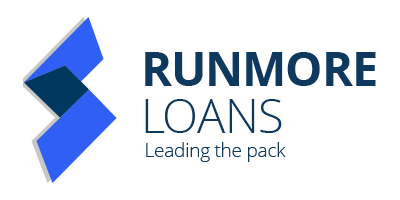Getting a no from the bank or lender when you’re trying to buy a home can be frustrating and disheartening. But I have some tips below that I’ve helped my clients with through the years and the most important thing to remember is – you can always turn the situation around to make your property ownership dreams come true.
Here are my top tips for what to do when you’re not eligible for a home loan
1. Check your credit score and make sure it’s in good shape
Your credit score is one of the most important factors lenders consider when you apply for a mortgage or home loan. A bad credit score can make it difficult to get approved for a loan, and can result in higher interest rates and monthly payments. That’s why it’s important to check your credit score regularly and make sure it’s in good shape. There are a few things you can do to improve your credit score, such as paying your bills on time and maintaining a good credit history, as well as eliminating After Pay and other similar services. If you’re not sure where to start, you can ask your broker. We can access credit scores on your behalf with your consent.
2. Apply for pre-approval for a mortgage to see how much you can afford
If you’re thinking of buying a home, one of the first steps you could take is getting pre-approved for a mortgage (even if you’re not ready yet). This will give you an idea of how much you can afford to spend on a home, so you have a more realistic idea of budget and requirements when you’re ready to buy.
Getting pre-approved is fairly easy to do – you simply need to contact your broker and provide some basic financial information. Once you’re pre-approved, you’ll have a better idea of what kind of homes are within your budget. This can help to make the home-buying process easier and more efficient. So if you’re thinking of buying a home, be sure to get pre-approved for a mortgage first. It could make the entire process much simpler.
3. Amp up your savings
For most people, buying a home is the biggest purchase they will ever make. It’s important to carefully consider all of the costs involved in order to avoid being caught off guard later on. One of the biggest upfront costs is the down payment (deposit). This is the money that you will need to put towards the purchase of your home and you need to ideally aim for 20% of the purchase price plus costs such as stamp duty, conveyancing etc. There are ways around this if you don’t have the full 20% such as LMI and government grants and schemes.
Many people choose to save up for their down payment over a period of time, and this can be a good option if you have the discipline to stick to your savings plan. However, it’s important to keep in mind that savings accounts typically have low interest rates, so you may not earn much on your savings during this time. Non-refundable gifts and/or family guarantee loans are a way your parents can help – The Bank of Mum and Dad is a big lender nowadays ($35B at last estimate)! Ultimately, there is no right or wrong answer when it comes to financing your down payment – it’s just important to do your research and make sure you are prepared for this significant expense.
4. Research the different types of mortgages available to you
When you’re ready to buy a home, one of the first things you’ll need to do is research the different types of mortgages available to you. A mortgage is a loan that is used to purchase a property, and there are a variety of different lenders who offer these loans. Home loans typically have a term of 30 years, although other terms are available. The interest rate on your mortgage will determine how much you’ll need to pay each month, and it’s important to compare rates from multiple lenders before you make a decision. You should also be aware of the fees associated with taking out a mortgage, as well as any prepayment penalties that may apply if you decide to sell your home or refinance your loan. By doing your homework and shopping around, you can ensure that you find the best mortgage for your needs.
5. Decide on the right time to buy a home
Many people dream of owning their own home, but the process of buying property can be complicated and expensive. Home loans are available from a variety of lenders, and it’s important to compare interest rates and terms before making a decision. It’s also essential to have a clear idea of your financial situation and what you can afford.
The timing of your purchase is also important. The housing market ebbs and flows, so it’s important to pay attention to trends before making an offer on a property. By doing your research and being patient, you can ensure that you buy the home of your dreams at the right price.
If you need help assessing which type of mortgage is right for you, or you’ve been declined and want to understand how to improve your situation, we’re here for you. Book an appointment with me today.



